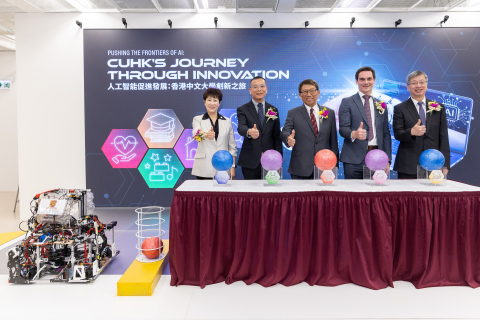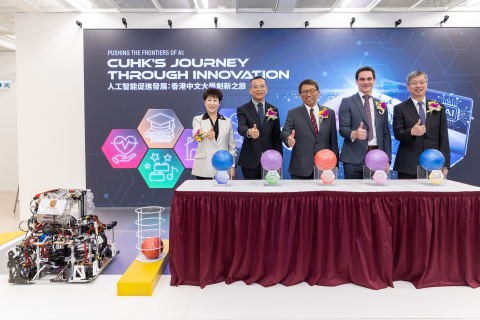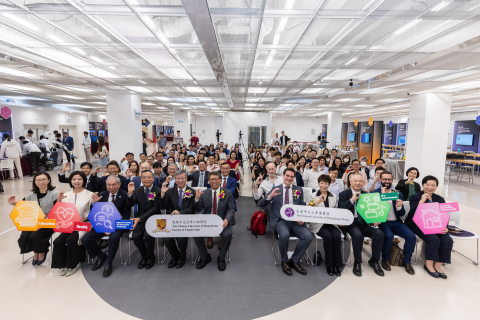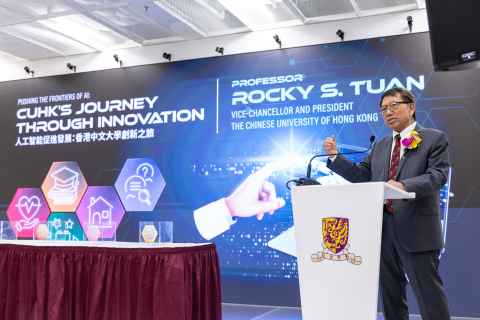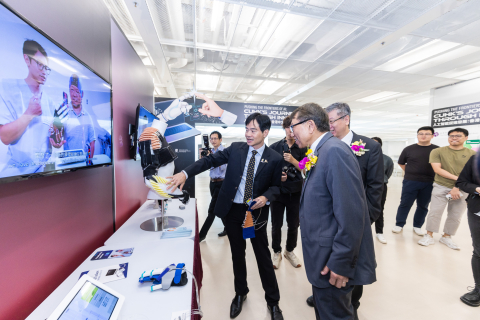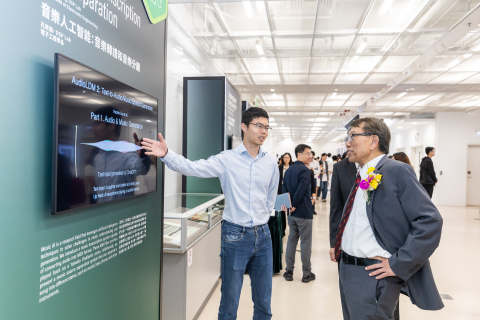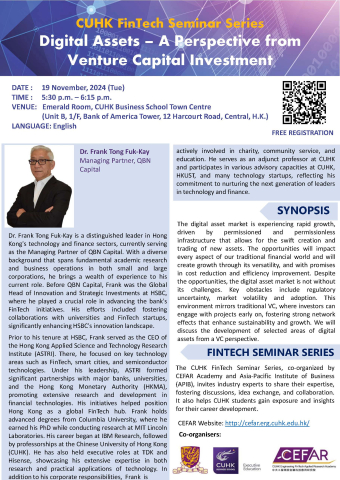The Chinese University of Hong Kong (CUHK) is hosting the “Pushing the Frontiers of AI: CUHK’s Journey Through Innovation” exhibition from today until 17 November 2024 at the University Library’s Learning Garden and MakerSpace. The exhibition highlights the impact of artificial intelligence (AI) and information technology across various fields, including health, visual arts, smart living and education. The opening ceremony, along with a choreographed drone show, took place on 14 October and attracted an impressive turnout of over 100 attendees. The ceremony was honoured by the presence of several distinguished guests, including Professor Rocky S. Tuan, CUHK Vice-Chancellor and President; Ir Alice Chow, Senior Vice President of the Hong Kong Institution of Engineers; Professor Tsang Hon-ki, Faculty Dean of Engineering at CUHK; Mr Benjamin Meunier, CUHK’s University Librarian. Professor Tuan said: “This exhibition at CUHK Library represents not just a showcase of technological advancements but also a celebration of CUHK’s pioneering role in the field of AI. Through collaborative efforts between our Faculty of Engineering and the Library, we aim to present the evolution of AI in an accessible and engaging manner, allowing audiences from both the University and the wider community to discover the innovations that are shaping our world.” Professor Tuan took a moment to pay tribute to the late Professor Tang Xiao’ou, an important member of CUHK and a pioneer in the field of AI, “Professor Tang was instrumental in advancing computer vision and deep learning technologies, and his groundbreaking research has had a profound impact on both academia and industry. Professor Tang’s intellectual legacy continues through the work of his students and colleagues, as well as through the innovative spirit that he instilled in our academic community.” Professor Tsang said: “The recent announcement of the 2024 Nobel Prizes in Physics and Chemistry was timely recognition of the importance of AI. The Nobel Prize in Physics was awarded to Professor John Hopfield from Princeton University and Professor Geoffrey Hinton from the University of Toronto for their research underpinning artificial neural networks. Half of the Nobel Prize in Chemistry went to Demis Hassabis and John Jumper from Google DeepMind. They developed the AI model AlphaFold to accurately predict the structure of proteins from their amino acid sequences, and solved a problem that had existed for half a century in chemistry. AI will continue to make impactful advances in science and engineering, so it is very timely for CUHK to showcase our contributions pushing the frontiers of the subject.” Mr Meunier said: “The Library is a place that brings together people from diverse backgrounds and disciplines, and this event exemplifies the role of our university library in facilitating and hosting meaningful conversations. Today, we are honoured to welcome guests from various academic institutions, disciplines, industries, as well as from around the world. I hope this event serves as a meeting place for discussion and the exchanges of ideas on topics related to AI, technology and ethics.” The exhibition features several zones, each dedicated to different applications of AI: Zone 1: Health Zone 2: Visual Arts and Creativity Zone 3: Education Zone 4: Technology Advancement and Smart Living Zone 5: Digital Assistants and Interactive Technologies Features advanced chatbots and language models showcasing natural language processing advancements. “Pushing the Frontiers of AI: CUHK’s Journey Through Innovation” exhibition details Date: Now until 17 November 2024 Remarks: Free admission for visitors
|
|

